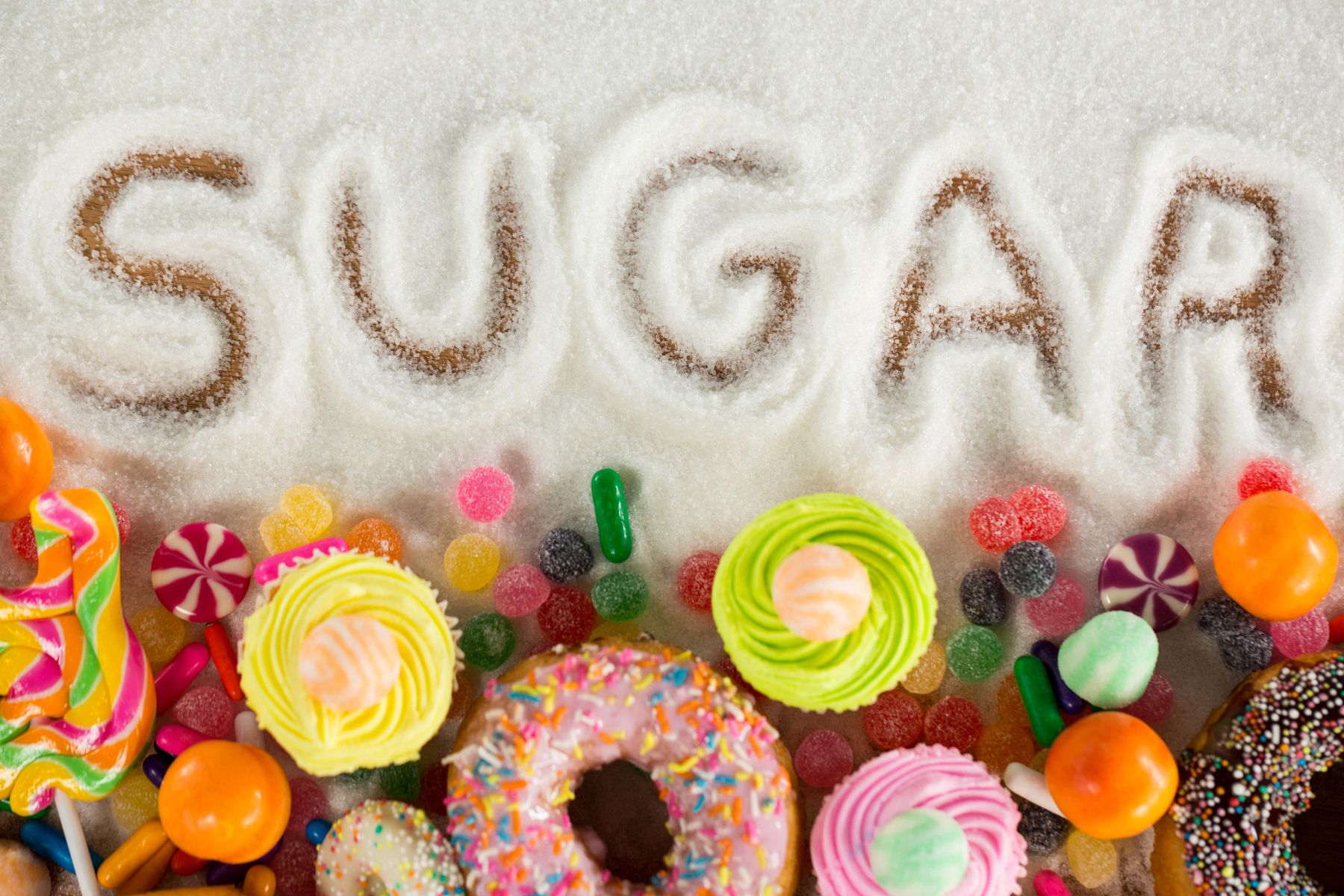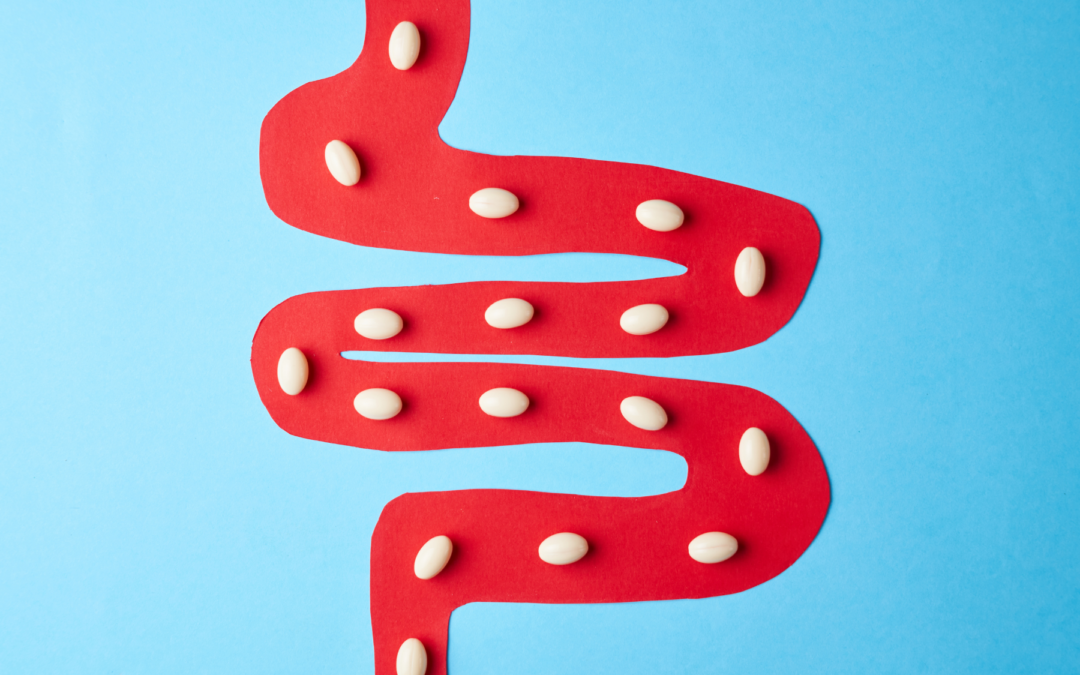Sugar, you know – that sweet stuff that tastes pretty good? It’s typically in our favorite desserts, added to our drinks, and sometimes in our meals. Sometimes it can be easy for sugar to go unnoticed in our diets, especially when we don’t know which foods have it or don’t pay attention to the labels. There are different types of sugars including natural sugar, but today we’ll be focusing on added sugar.
The American Heart Association recommends no more than 24 grams of added sugar for women, and 36 grams of added sugar for men.
Why is too much sugar a bad thing? In this blog, we’ll discuss a little bit about what sugar does in our bodies and what happens when we get too much.
What is sugar?
First, let’s break down sugar. Table sugar, aka sucrose, is a simple carbohydrate. It dissolves when mixed in water, carmelizes when heated, and tastes sweet no matter what. There are other sugars added to foods such as honey and maple syrup. Honey is composed of glucose and fructose. Maple syrup is mostly sucrose with some glucose and fructose.
Glucose, fructose, and sucrose are the three types of sugars that are commonly added to processed foods to sweeten them.
What happens when we eat added sugar?
Anytime we eat sugar, our body begins digesting them in the mouth. They will be digested further in the stomach and the small intestine. When it is fully digested, the sugar, in its simplest most absorbable form (glucose) then enters the bloodstream. Our cells then take in glucose with the help of insulin and turn it into energy wherever it is needed in the body. If our energy stores are filled up, then the glucose will be stored as triglycerides in our fat tissue.
What will happen if we eat too much added sugar?
Anytime we eat sugar, our body’s blood sugar will rise as a natural response. Our body typically works efficiently at getting our blood sugar into a normal range by releasing insulin when blood sugars are elevated. Insulin is a hormone that is secreted by the pancreas. It acts like a key to open up our cells so glucose can enter and be used as energy or stored for later use.
When we constantly put our body into a high blood sugar state, it will constantly have to produce insulin to regulate its blood sugar. If this becomes a constant state for our bodies, eventually, our cells will stop responding to insulin as efficiently as they once did. This is called insulin resistance.
Insulin Resistance
When we become insulin resistant, our bodies are unable to get glucose out of the bloodstream quickly enough. This leads to high blood sugar for a longer period of time. Combine a blood sugar that doesn’t quite get back to its regular levels before your next meal with more food and then we see your blood sugar spiking even higher. This increases your risk of developing type 2 diabetes, leads to weight gain, and leads to elevated cholesterol.
High Blood Pressure
Not to mention, too much sugar in your blood makes your vascular system work harder. This occurs because consistently high blood sugars damage our nerve and blood vessel walls, stiffening them and causing them to narrow. The stiffening of the blood vessel walls is caused by cholesterol build-up, also known as plaque. This in turn increases blood pressure.
Inflammation
Sugar stimulates our body’s production of free fatty acids in the liver. When free fatty acids are digested and broken down, the end result is byproducts that can actually trigger an inflammatory response. Free fatty acids interfere with the breakdown of glucose.
Brain Fog
Excessive sugar intake can affect our ability to think, remember details, or concentrate. While glucose is our body’s #1 energy source, especially our brains, too much of it can interfere with its functions. Hyperglycemia (high blood sugar) can increase inflammation in the brain which inhibits normal brain function.
Fatigue
Sugar is digested by the body fairly quickly. While you may feel great right after having something sugary, within 30 minutes to an hour you might find yourself feeling tired. This is because your blood sugar is spiking and then crashing. The crash is what leads to fatigue.
Cravings
The more sugar we eat, the more blood sugar spikes and crashes we’ll see. When we experience crashes our bodies begin to crave more sugar to get our blood sugar back up. If we eat more sugar, we’re essentially hopping onto a blood sugar rollercoaster. We go up and feel great, but then come back down, feel tired, and have cravings for more.
The Bottom Line
The examples listed above are just some of the issues that can arise when we have too much-added sugar in our diets. Overall, it is important to watch our added sugar intake to help prevent any of the issues listed above, and those not listed. Creating filling and well-balanced meals as well as eating consistently can help prevent cravings for sugar. Save those sugary desserts for just a couple of times a week rather than after each meal. Try to limit drinking sugary beverages often. Any stride you can make to decrease your added sugar intake is a step in the right direction.







